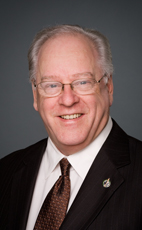Mr. Speaker, yesterday, people around the world paused to remember the 18th anniversary of the massacre at Tiananmen Square in Beijing, China.
From April to June in 1989, pro-democracy and labour activists, intellectuals and students gathered in a series of protests in the Beijing square. Eighteen years ago yesterday, on June 4 the military cracked down on protesters and several hundred to several thousand were killed.
Recently I had the opportunity to travel to Beijing. For 10 minutes I stood in Tiananmen Square and paid homage to those who were killed, injured or imprisoned for something that we Canadians sometimes take for granted: freedom of speech.
It would be ideal if one could stand here today and say that there have been great improvements in respect for and promotion of human rights in China. Even as China prepares to open its doors to the world for the Beijing Olympics in the summer of 2008, its record is abysmal.
Falun Gong practitioners continue to be targeted and claims of organ harvesting are being investigated and corroborated by international investigators. Ethnic minorities, like the Uyghurs, continue to be persecuted. Canadian citizens, like Huseyin Celil, are kept in detention and denied their consular rights.
Before, during and after the Beijing games, the world will turn its attention on China in a way as never before. I would encourage the government to take every opportunity to engage in respectful dialogue with--

